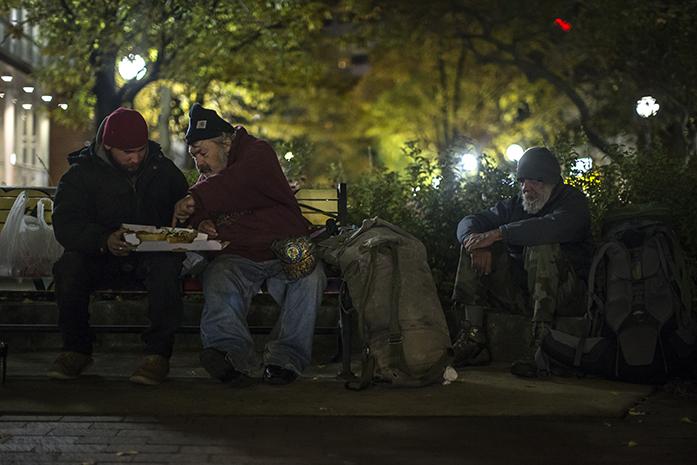Last year, a former Aldi was turned into an emergency homeless center. The program, funded by Johnson County, is considered a successful one, helping hundreds escape the deadly cold of Iowa winter nights. The temporary-shelter program, in general, has widespread support from local officials. The problem? Space. A space has to be volunteered by a property owner in the area in order for the program to continue. Otherwise, the some $15,000 in county funding will disappear, and the program will cease to exist.
That’s where the program is on loose ground. Last year’s center, in an empty Aldi, was a perfect location. The property owners, however, will not volunteer the property again. They made it clear during the search for space last year that their location would only be available once. The property will be renovated and can’t afford another winter. The owners continue to support the program, though, searching for other vacant spaces to be volunteered.
The burden really shouldn’t fall on them again. Their compassion and generosity was more than what was expected of them as citizens of Iowa City, and their emergency center treated the sick and injured, sheltered the homeless, and may have ultimately saved lives. The burden now falls to the rest of the community, to another property owner willing to open a vacant space to the homeless.
It’s a lot to ask, but it is an imperative question as the temperature is quickly dropping. Rainstorms will become snowstorms, and the weather has the potential to take lives. Rising costs of living, foreclosures and property values increasing, among so many other factors, have created or perpetuated the homeless community in and around Iowa City. The search is finding little traction, perhaps an increase in incentives could ease the process.
With increased funding at the city, county, or local level, vacant properties could be rented from their owners. The incentive to rent out otherwise unused space could be incredibly fruitful in the years to come. This program has a harrowing existence, lurching from year to year with no certainty that it will continue. A modest rental price paid by the state could make up the minds of many who are otherwise hesitant to step up to the plate. These spaces help prevent a strain on city resources, at the very least by preventing a discovery of some perished person, killed by the extreme lows in December and January.
An increase in funding to provide rent for property owners may require funds being donated or taxed locally. Given Iowa City’s recent record for voting on any increases in tax, no matter what the cause, that route can almost be considered closed. Public attention, awareness and fundraising could provide some of the costs, but it would be difficult to fulfill the needs of the shelters and rent with such methods. Perhaps some sort of deal with the city, or local businesses, to match funds raised could increase the amount generated dramatically.
The Daily Iowan Editorial Board applauds this program and wishes to see it continue. It cannot do so, however, without an answer to the call of public duty by a local property owner. Increasing the incentives may very well be a way to secure the longevity of this program, which serves Iowa City’s most impoverished.



